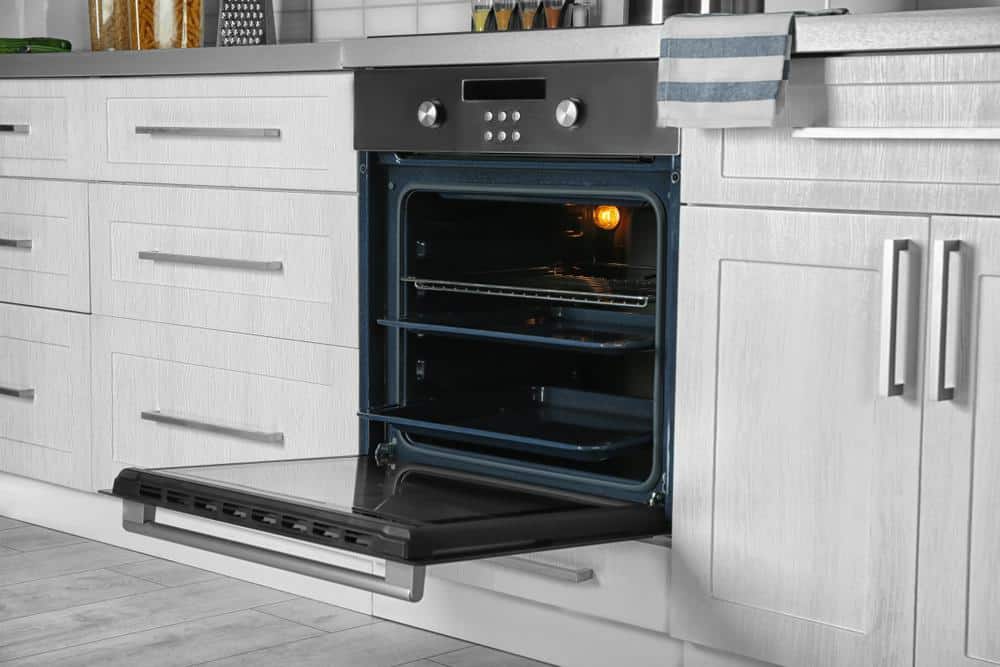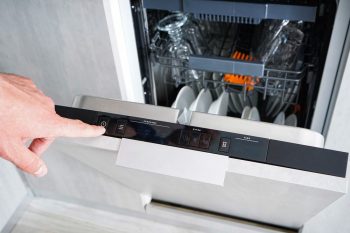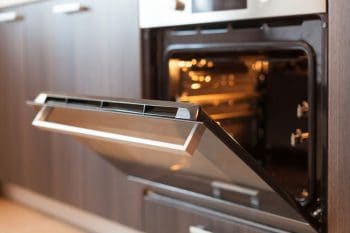
In the world of culinary technology, the electric oven holds a significant place. It has revolutionized the way we cook, offering precision, efficiency, and safety. But why was the electric oven invented, and who was the mastermind behind it? The answer lies in the ingenuity of a Canadian inventor, Thomas Ahearn.
Thomas Ahearn invented the electric oven to showcase the potential of electricity for practical applications in daily life. He aimed to overcome the limitations of traditional cooking methods, such as uneven heat distribution, difficulty in controlling temperature, and the risk of gas leaks. Ahearn’s invention provided a cleaner, safer, and more efficient alternative, revolutionizing the culinary world.
Who was Thomas Ahearn?
Thomas Ahearn, born on June 24, 1855, was a successful inventor and businessman from Ottawa, Ontario. Often referred to as the “Thomas Edison of Canada,” Ahearn was a prominent figure in the electrical industry, holding 11 Canadian patents. His most notable invention was the electric oven, for which he was granted Canadian Patent no. 39,916 in August 1892.
The Motivation Behind the Invention
Ahearn’s invention was driven by his desire to showcase the potential of electricity for practical applications in everyday life. He filed a patent for an improved electric oven, which featured enclosed pits with electric heaters and incandescent lamps to light the interior. This allowed users to monitor the cooking process through a glass window, a feature that was ahead of its time.
In a bid to demonstrate the capabilities of his invention, Ahearn prepared the world’s first meal cooked entirely with electricity at the Windsor Hotel in Ottawa. This event not only highlighted the practicality of electric cooking but also promoted Ahearn’s own business ventures in the electrical industry.
The Problems Solved by Electric Ovens
Before the advent of electric ovens, cooking involved wood, coal, or gas stoves. These traditional methods had several limitations, including uneven heat distribution, difficulty in controlling temperature, and the risk of gas leaks. Electric ovens addressed these issues by providing consistent heat, precise temperature control, and eliminating the risk of gas leaks. Moreover, they were easier to clean due to their smooth surfaces and fewer parts to disassemble.
The Technology Behind Electric Ovens
The technology that set electric ovens apart from traditional cooking methods was the use of electrical heating elements. These elements, known as resistors, generate thermal energy by resisting the flow of electrical current. This allows for even heat distribution, particularly in fan-assisted ovens where hot air is circulated around the oven.
The Reception and Impact of Electric Ovens
Initially, the public was slow to adopt electric ovens due to the unfamiliar technology and the need for homes to be electrified. However, the culinary world praised the invention, recognizing its potential for precise and consistent cooking. Despite some early setbacks, including the bankruptcy of the American Electric Heating Corporation, the company that owned the rights to Ahearn’s electric oven, the technology gradually gained acceptance and popularity.
The invention of the electric oven had a profound impact on society and everyday life. It marked a shift towards cleaner and more efficient cooking methods. Modern electric ovens have improved health and environmental benefits, contributing to a more sustainable lifestyle. They also influenced the culinary world, with many professional chefs now preferring electric stoves for their quicker heating, easier cleaning, and low barrier to entry.
The Evolution of Electric Oven Technology
Since Ahearn’s time, electric oven technology has advanced significantly. Modern electric ovens now come with digital controls for precise temperatures and cooking times, energy-saving designs, improved baking precision, and multiple cooking functions. Some are even equipped with smart technology, allowing users to control and monitor their ovens remotely.
Conclusion
Thomas Ahearn’s invention of the electric oven marked a significant milestone in culinary technology. It addressed several issues associated with traditional cooking methods, offering a cleaner, safer, and more efficient alternative. Today, the electric oven continues to evolve, providing home cooks and professional chefs with innovative features and improved cooking performance. While we continue to benefit from this remarkable invention, we must also remember the ingenuity and foresight of Thomas Ahearn, the man who made it all possible.
Frequently Asked Questions
What other inventions is Thomas Ahearn known for?
Aside from the electric oven, Thomas Ahearn is also known for other significant inventions such as the electric streetcar and the electric heating system. He also played a crucial role in the electrification of Canada’s capital city, Ottawa.
Can you provide more details about the first meal cooked using an electric oven?
Thomas Ahearn prepared the first-ever meal cooked entirely with electricity at the Windsor Hotel in Ottawa in 1892. The meal was part of a demonstration to showcase the potential of his electric oven invention. However, the specific dishes prepared during this historic event are not well-documented.
Did Thomas Ahearn have any formal education in electricity or engineering?
Thomas Ahearn did not have formal education in electricity or engineering. He began his career as a telegraph operator and later developed his knowledge and skills in the electrical industry through practical experience and self-learning.
How did the electric oven impact the commercial food industry?
The electric oven revolutionized the commercial food industry by providing a more efficient, precise, and safe method of cooking. This led to improvements in food quality and consistency, and also allowed for greater control over cooking processes, which is crucial in commercial settings.
Are electric ovens more energy-efficient than gas ovens?
Electric ovens are generally more energy-efficient than gas ovens. They retain heat better and distribute it more evenly, which can result in lower energy usage over time. However, the actual energy efficiency can vary depending on specific models and usage patterns.











